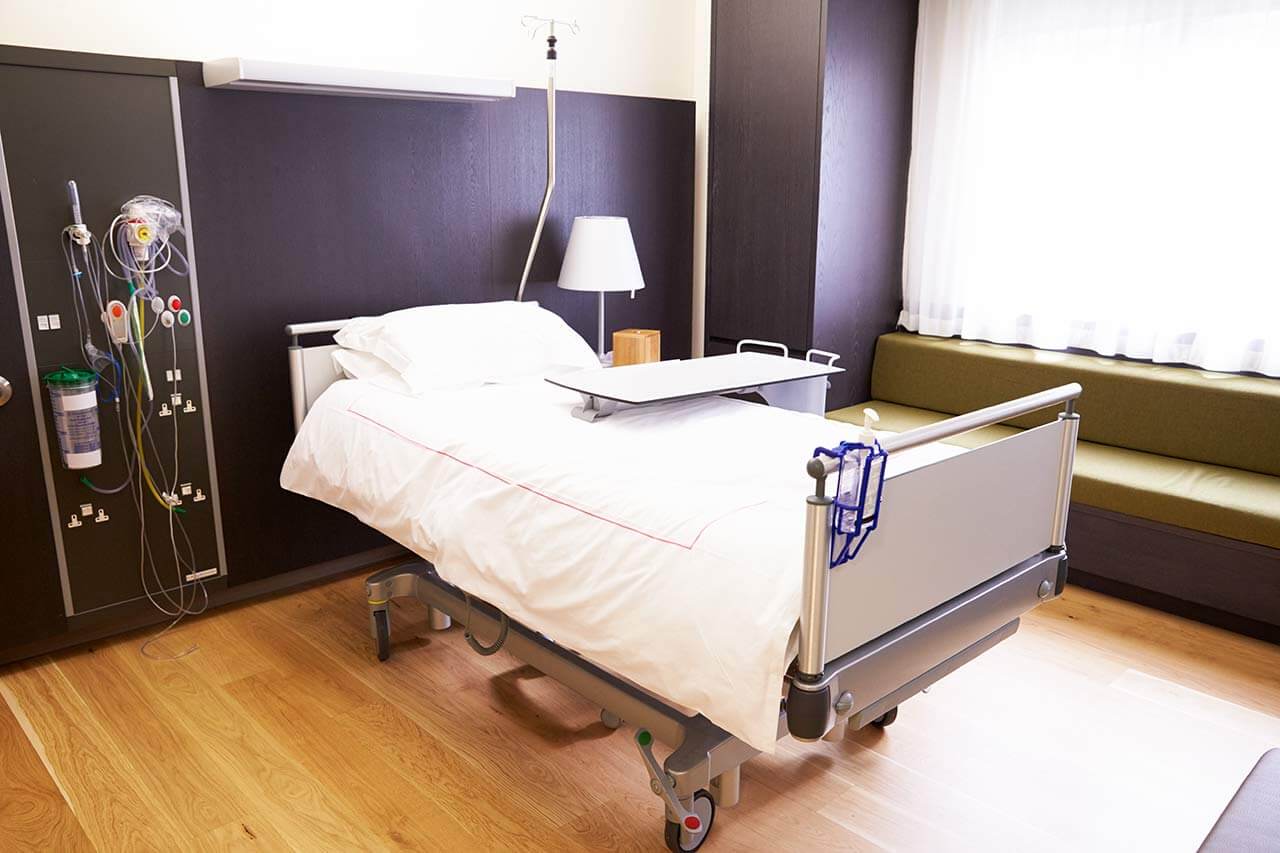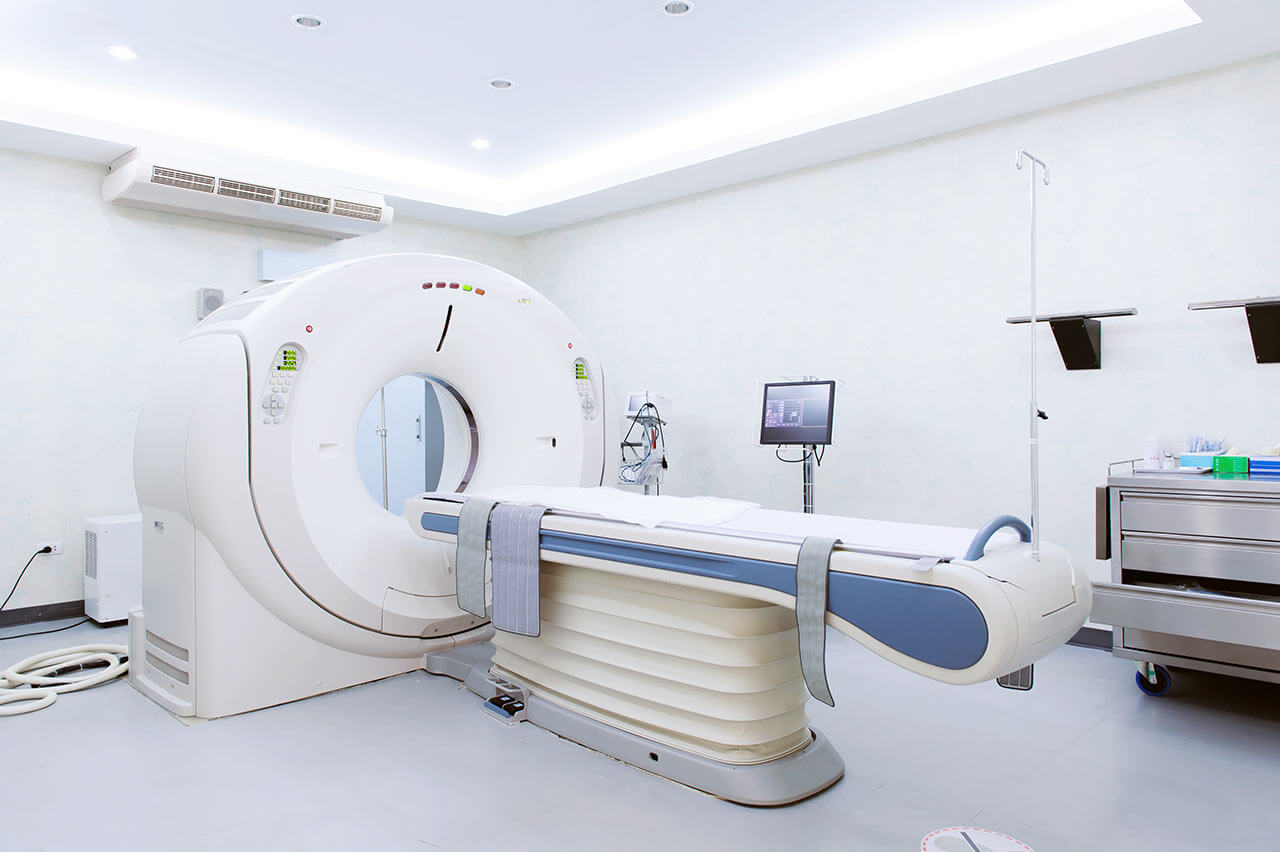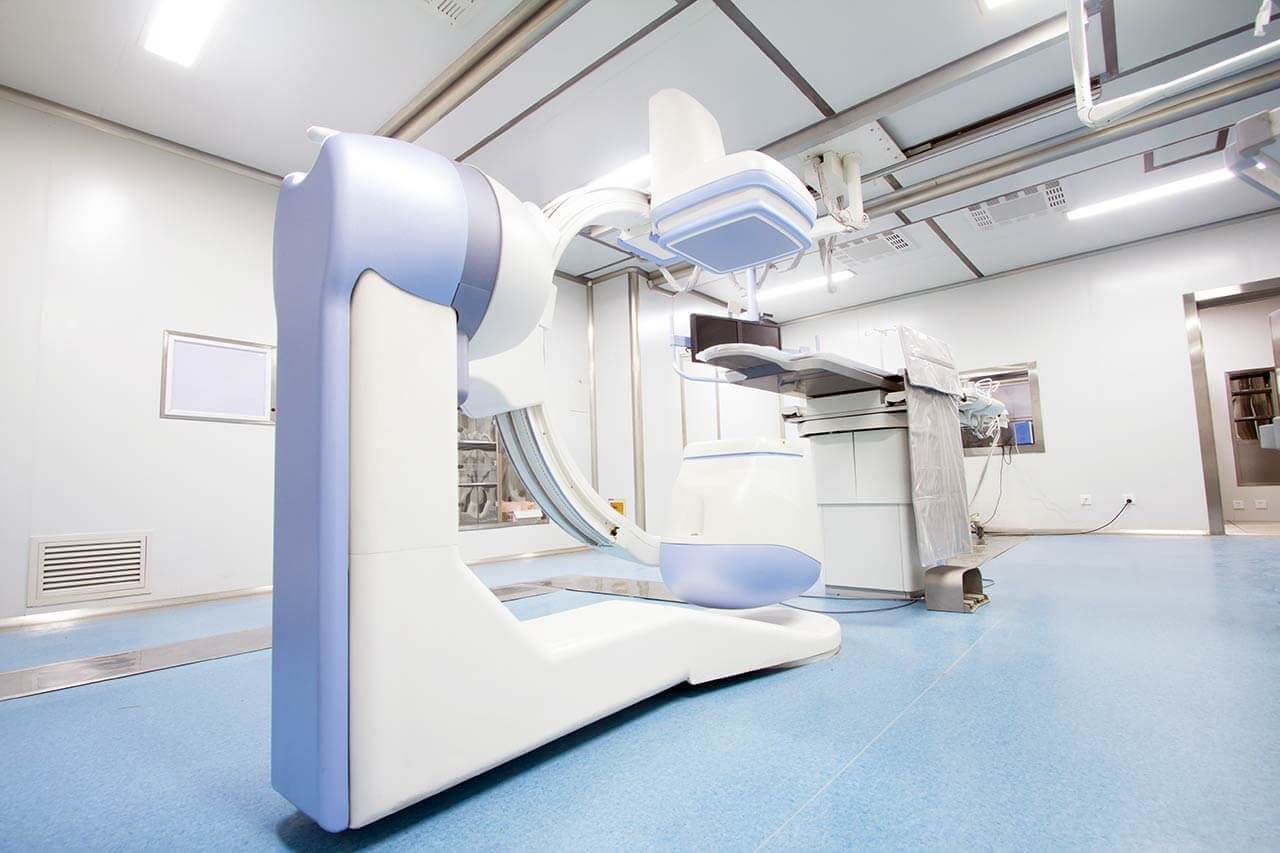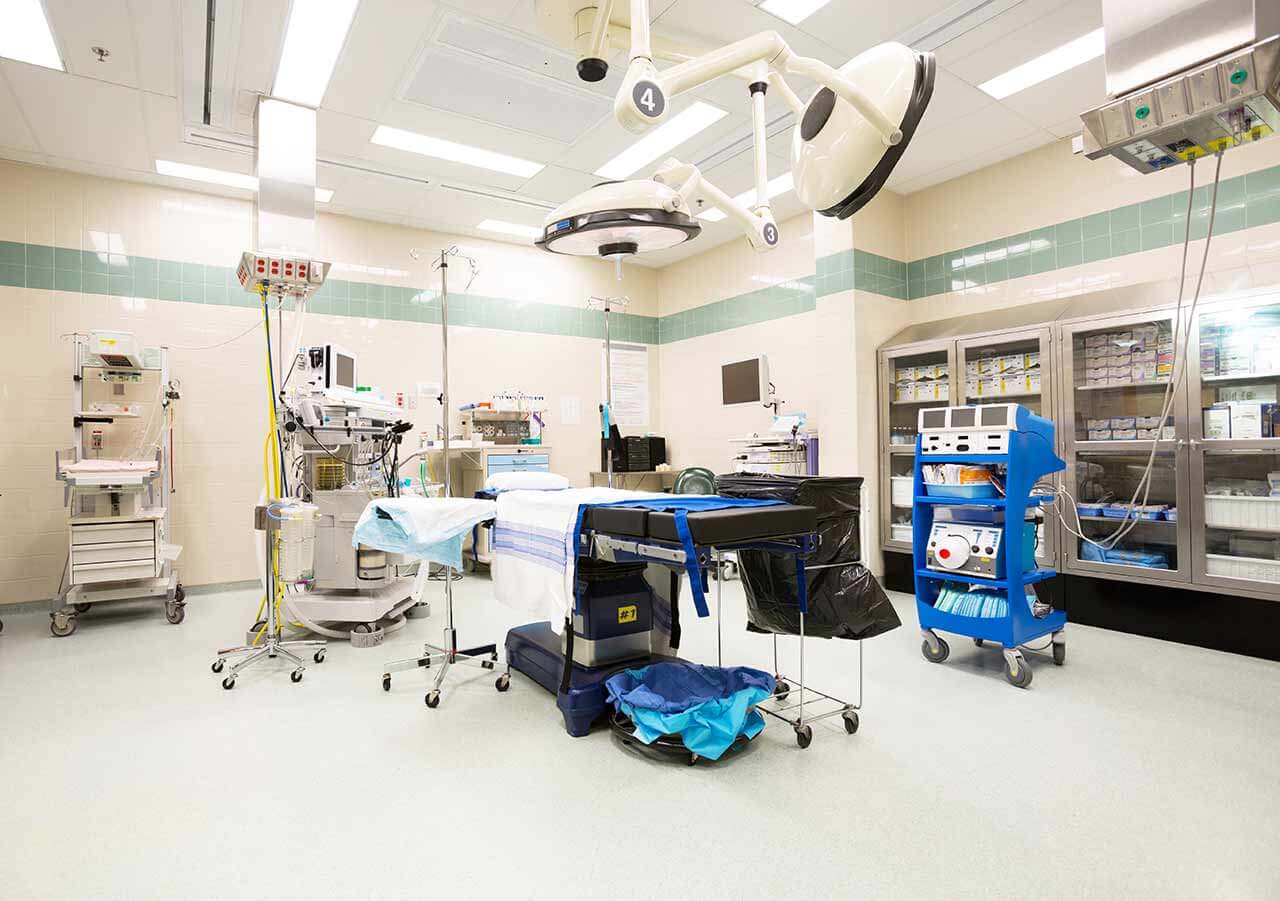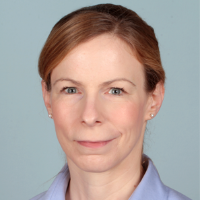
The program includes:
- Initial presentation in the clinic
- case history collection
- general clinical examination
- laboratory tests:
- complete blood count
- general urine analysis
- biochemical analysis of blood
- indicators of inflammation
- indicators blood coagulation
- ultrasound of abdimin
- preparation according to preoperative standard
- еndoscopic muscle repair
- symptomatic treatment
- cost of essential medicines
- nursing services
- stay in the hospital with full board
- full hospital accommodation
- elaboration further recommendations
Required documents
- Medical records
- US scan (if available)
Service
You may also book:
 BookingHealth Price from:
BookingHealth Price from:
About the department
According to the Focus magazine, the Department of General and Abdominal Surgery, Hepatopancreatobiliary Surgery, Colorectal Surgery, Hernia Surgery at the Charite University Hospital Berlin is one of the best medical facilities in Germany for the treatment of colon, stomach, esophageal, pancreatic, and liver cancers!
The main specialization is surgical procedures for malignancies in the intestines, stomach, esophagus, liver, pancreas, and rectum. The department also successfully operates on patients with chronic inflammatory bowel disease such as Crohn's disease and ulcerative colitis. The department's therapeutic capabilities are complemented by the treatment of gastroesophageal reflux disease, sigmoid diverticulum, umbilical and inguinal hernias, cholelithiasis, and anorectal disorders. Nearly all surgical procedures are performed using minimally invasive surgical techniques – the department has the status of a Center of Excellence for Minimally Invasive Surgery certified by the German Society for General and Vascular Surgery (DGAV). The medical facility also offers innovative da Vinci robot-assisted surgery. These procedures have become the standard of care for colon cancer, rectal cancer, and colonic diverticulosis. Each clinical case is evaluated individually and the surgical procedure is carefully planned. Surgeries are performed in high-tech operating rooms in compliance with hygiene and safety standards. The department is headed by Prof. Dr. med. Katharina Beyer.
Patients with gastrointestinal cancers, especially primary and metastatic liver lesions, are operated on almost daily in the department. Cancer surgery is part of a multimodal treatment approach, and surgical intervention is often the mainstay of a cancer treatment regimen that is supplemented by systemic therapies and/or irradiation. Treatment tactics are developed in a weekly interdisciplinary tumor board, which allows physicians from related specialties to thoroughly study the characteristics of the clinical case and offer the most effective treatment options. Colon cancer is the most common oncological disease in the practice of the department's surgeons – more than 800 patients with this diagnosis are operated on here every year. The department's specialists actively practice minimally invasive and robotic surgery for the treatment of colorectal cancer. These operations are not inferior to classical surgery in terms of effectiveness, but at the same time they allow for maintaining a high quality of life in the postoperative period. Thanks to miniature incisions, the surgical risks are reduced, significant blood loss is eliminated, the patient does not suffer pain, and the hospital stay is significantly shortened. When clinically indicated, the department's surgeons remove intestinal tumors using the advanced da Vinci X robotic system. Controlled by a specially trained surgeon, robotic surgery is highly precise and helps avoid the bowel dysfunction that often occurs after traditional open surgery.
Treatment of chronic inflammatory bowel disease (IBD) is also an integral part of the work of the surgeons in the healthcare facility. Ulcerative colitis causes inflammation of the colon, and Crohn's disease can affect the entire gastrointestinal tract. The first-line treatment for IBD is drug therapy, but in 90% of Crohn's disease cases and 50% of ulcerative colitis cases require surgery at some point. When considering the need for surgery in IBD, abdominal surgeons work with gastroenterologists to carefully analyze the patient's clinical data and previous treatment options to determine the advisability of surgery. Patients with IBD are most often operated on using minimally invasive surgical techniques. Robotic surgery with the da Vinci X device may sometimes be used.
The department's abdominal surgeons specialize in the treatment of gastroesophageal reflux disease (GERD). This pathology is characterized by the reverse flow of the contents of the stomach and duodenum into the esophagus, which causes the main symptom of the pathology, heartburn. In most cases, patients with GERD receive drug treatment to relieve symptoms, but in some situations this therapy is ineffective, so surgical treatment is considered. The standard surgery for GERD is a Nissen fundoplication, in which the bottom of the stomach is wrapped around the esophagus, creating a cuff that prevents the stomach contents from flowing back into the esophagus. Patients with GERD also often have a diaphragmatic hernia. In these cases, fundoplication is performed at the same time as hernioplasty. If necessary, surgeons may implant an EndoStim® device to strengthen the cardia of the stomach and create a natural barrier against reflux. All surgical procedures for gastroesophageal reflux disease are performed using minimally invasive techniques, so patients spend only a few days in the hospital.
Colorectal surgery in the department focuses on the treatment of fecal incontinence, hemorrhoids, rectal prolapse, anal fissures, fistulas, and abscesses, and anal and rectal malignancies. The surgical treatment of fecal incontinence is of particular clinical interest to the physicians of the healthcare facility: the specialists successfully perform sacral nerve stimulation and sphincter replacement surgery, which is classified as a particularly complex procedure.
The department's surgical services include the following treatment options:
- General and abdominal surgery
- Surgery for malignant diseases
- Surgery for stomach cancer
- Surgery for esophageal cancer
- Surgery for gastrointestinal stromal tumors
- Surgery for chronic inflammatory bowel disease
- Surgery for Crohn's disease
- Surgery for ulcerative colitis
- Surgery for gastroesophageal reflux disease
- Surgery for appendicitis
- Surgery for sigmoid diverticulitis
- Surgery for malignant diseases
- Hepatopancreatobiliary surgery
- Surgery for malignant diseases
- Surgery for liver cancer and liver metastases
- Surgery for pancreatic cancer
- Surgery for gallbladder cancer
- Surgery for pancreatitis
- Surgery for cholelithiasis
- Surgery for malignant diseases
- Colorectal surgery
- Surgery for malignant diseases
- Surgery for anal cancer
- Surgery for rectal cancer
- Surgery for fecal incontinence
- Surgery for hemorrhoids
- Surgery for rectal prolapse
- Surgery for anal fissures, fistulas, and abscesses
- Surgery for malignant diseases
- Hernia surgery
- Surgery for inguinal hernia
- Surgery for umbilical hernia
- Surgery for diaphragmatic hernia
- Other surgical services
Curriculum vitae
Higher Education
- 1999 - 2005 Medical studies, University of Luebeck.
Medical Practice
- 2006 - 2015 Surgeon, Department of General and Abdominal Surgery, University Hospital Greifswald.
- 2016 - 2020 Senior Physician, Department of General and Abdominal Surgery, Hepatopancreatobiliary Surgery, Colorectal Surgery, Hernia Surgery, Charite University Hospital Berlin.
- Since 01.2021 Head Physician, Department of General and Abdominal Surgery, Hepatopancreatobiliary Surgery, Colorectal Surgery, Hernia Surgery, Charite University Hospital Berlin.
Clinical Interests
- Treatment of esophageal cancer.
- Treatment of stomach cancer.
- Treatment of gastroesophageal reflux disease.
Research Interests
- Research projects on sepsis.
- Research projects in oncological diseases.
Memberships in Professional Societies
- German Society of Surgery (DGCH).
- German Society for General and Visceral Surgery (DGAV).
- German Working Group on Minimally Invasive Surgery (CAMIC).
Photo of the doctor: (c) Charité – Universitätsmedizin Berlin
About hospital
According to the reputable Focus magazine, the Charite University Hospital Berlin ranks 1st among the best healthcare facilities in Germany!
The hospital is one of the largest and leading university medical complexes in Europe, and also consistently holds leading positions in the international medical arena. The Charite operates on the basis of the Faculty of Medicine of the Free University of Berlin and the Humboldt University of Berlin. Patients are offered modern diagnostics and treatment with the very latest methods, many of which were developed by professors and scientists of the medical complex. More than half of all German Nobel Prize winners in medicine and physiology, such as Emil von Behring, Robert Koch, and Paul Ehrlich, studied and worked at the Charite University Hospital Berlin. The medical complex includes more than 100 specialized departments and institutes, which helps to ensure that patients receive care in all existing medical specialties. The hospital has exceptional experience in treating complex clinical cases.
Each year, the hospital treats more than 137,800 inpatients and more than 787,700 outpatients. The hospital has a bed capacity of 3,293 beds. A huge medical team consisting of 5,670 scientists and doctors and more than 6,000 nurses work for the benefit of the patients. The main task of all specialists of the medical facility is to restore the patient's health or save his life in critical cases. The hospital has a friendly atmosphere where every patient feels care, respect and empathy.
The Charite University Hospital Berlin is generously funded by the German government, which is why it offers patients the latest generation of excellent equipment and comfortable infrastructure. The Charite medical complex is equipped with da Vinci robotic surgery systems, laser technologies, equipment for endovascular catheter-based interventions, neuronavigation devices, intraoperative monitoring systems, equipment for proton therapy available only in the most advanced medical centers in the world, and many other technologies. All these resources, combined with the experience and professional skills of the hospital's doctors, are the key to providing the most effective and safe treatment in accordance with the highest international medical standards.
The hospital is recognized with a huge number of quality certificates, including DIN EN ISO 9001:2015, certificates from the German Cancer Society (DKG), the German Society for General and Visceral Surgery (DGAV), the German Society for Thoracic Surgery (DGT), the German Hernia Society (DHG), and the ERAS Society.
The Charite University Hospital Berlin is a benchmark in the European healthcare system. Patients therefore receive impeccable medical service, quality care, and personalized service that puts the patient and their individual needs first.
Photo: (с) depositphotos
Accommodation in hospital
Patients rooms
The patients of the Charite University Hospital Berlin live in comfortable rooms made of modern design. Each room is equipped with an ensuite bathroom with a toilet and a shower. The standard room furnishing includes an automatically adjustable bed, a bedside table, a wardrobe for storing clothes, a table and chairs for receiving visitors, and a TV. If desired, Wi-Fi access can be provided. The hospital also offers enhanced-comfort rooms.
Meals and Menus
The patient and his accompanying person have a daily choice of three menus. If for any reason, you do not like the food, you will be offered an individual menu. Please inform the medical staff about your dietary preferences before the treatment.
Further details
Standard rooms include:
Religion
Religious services are available upon request.
Accompanying person
During the inpatient program, an accompanying person may stay with you in a patient room or at the hotel of your choice.
Hotel
During the outpatient program, you can live at a hotel of your choice. Managers will help you to choose the most suitable options.
The hospital offers a full range of laboratory tests (general, hormonal, tests for infections, antibodies, tumor markers, etc.), genetic tests, various modifications of ultrasound scans, CT scans, MRI and PET / CT, angiography, myelography, biopsy and other examinations. Treatment with medications, endoscopic and robotic operations, stereotaxic interventions is carried out here, modern types of radiation therapy are also used. The hospital offers patients all the necessary therapeutic techniques.
- Proton therapy
- CyberKnife treatment
- Hyperthermic intraperitoneal chemotherapy (HIPEC)
- PSMA therapy with Lutetium-177
- Joint replacement in adults and children
These are oncological diseases, benign neoplasms of the brain and spinal cord, heart valve defects, diabetes mellitus and its complications, joint diseases and other pathologies.
- Neurosurgery
- Oncology
- Plastic and reconstructive surgery
- Interventional radiology
- Proton therapy (Proton Therapy Center BerlinProtonen)
The medical team includes more than 4,225 highly qualified scientists and doctors.
